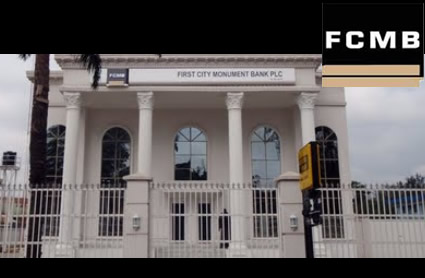FCMB Group Plc (FCMB), the Nigerian bank that bought bailed-out FinBank Plc three years ago, has suspended a planned Eurobond sale, and opted instead to borrow funds from a group of banks.
FCMB borrowed $300 million from international lenders at an average interest rate of 4 per cent, “below the Eurobond’s rate,” the Lagos-based bank said.
The lender is going ahead with plans to raise N30 billion ($182 million) through a sale of seven-year bonds to strengthen its capital base and expand assets. Nigeria’s central bank told banks in August they could no longer count certain assets as capital as the country implements tougher Basel standards for banks. The central bank also limited Tier-2 capital to 33 per cent of higher-quality Tier-1 capital.
FCMB intends to increase lending to customers by about 20 per cent to N540 billion this year, joining local rivals in raising funds to expand credit to consumers and finance infrastructure projects in Nigeria, Chief Executive Officer Ladi Balogun said June 23. It acquired FinBank in 2011, one of eight banks rescued by the Central Bank of Nigeria during a debt crisis in 2009.
The loans arranged with international banks, which have terms of two to eight years, “will provide lending to telecommunications, power and infrastructure projects,” the bank said. The providers include International Finance Corp., Citigroup Inc, Overseas Private Investment Corp. and the European Investment Bank, it said.
FCMB’s first-half profit rose 3 per cent from a year earlier to 9.58 billion naira, it said in a July 25 filing to the Nigerian stock exchange. Net interest income rose 20 percent to 32.36 billion naira. The lender is targeting a return on equity of 15 percent this year and 20 percent in 2016, compared with 13 percent in 2013, according to Balogun.
The bank’s stock declined 0.7 percent to 4.06 naira by the close in Lagos, paring its gain this year to 10 percent. That compares with a 6 percent retreat in the Nigerian Stock Exchange All-Share Index.

